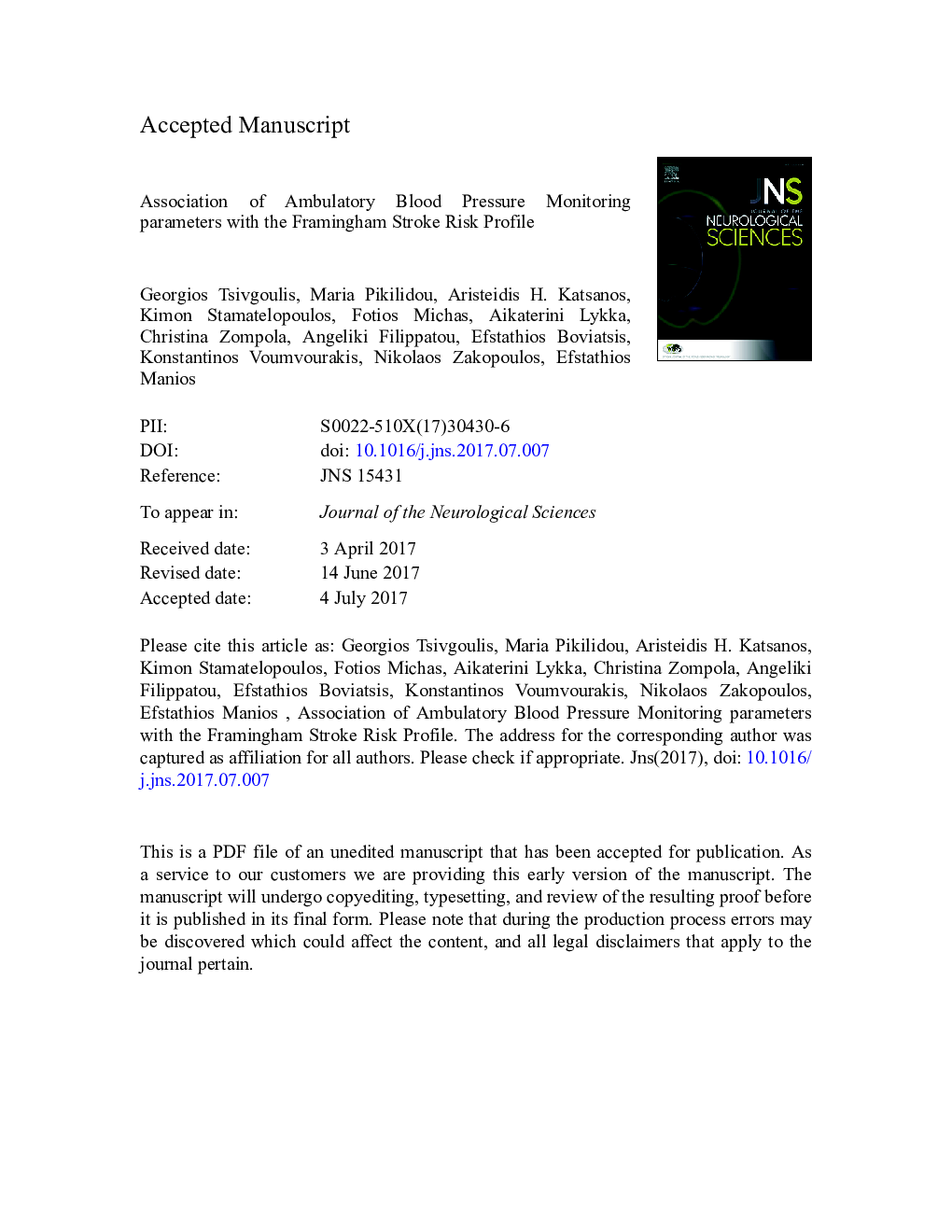| Article ID | Journal | Published Year | Pages | File Type |
|---|---|---|---|---|
| 5502585 | Journal of the Neurological Sciences | 2017 | 31 Pages |
Abstract
The Framingham Stroke Risk Profile (FSRP) is a novel and reliable tool for estimating the 10-year probability for incident stroke in stroke-free individuals, while the predictive value of ambulatory blood pressure monitoring (ABPM) for first-ever and recurrent stroke has been well established. We sought to evaluate cross-sectionally the association of ABPM parameters with FSRP score in a large sample of 2343 consecutive stroke-free individuals (mean age: 56.0 ± 12.9, 49.1% male) who underwent 24-hour ABPM. True hypertensives showed significantly higher FSRP (11.2 ± 5.0) compared to the normotensives (8.2 ± 5.0, p < 0.001), while subjects with white coat hypertension also had higher FSRP (10.2 ± 4.7) than normotensives (8.2 ± 5.0, p < 0.001). Compared to dippers that exhibited the lowest FSRP, non-dippers and reverse-dippers exhibited significantly higher FSRP (9.8 ± 4.8 for dippers vs 10.6 ± 5.2 and 11.5 ± 5.0 for non-dippers and reverse-dippers respectively, p â¤Â 0.001 for comparisons). In univariate analyses, the ABPM parameters that had the strongest correlation with FSRP were 24-hour (r = 0.440, p < 0.001), daytime (r = 0.435, p < 0.001) and night-time (r = 0.423; p < 0.001) pulse pressure (PP). The best fitting model for predicting FSRP (R2 = 24.6%) on multiple linear regression analyses after adjustment for vascular risk factors not included in FSRP comprised the following parameters in descending order: 24-hour PP (β = 0.349, p < 0.001), daytime SBP variability (β = 0.124, p < 0.001), 24-hour HR variability (β = â 0.091, p < 0.001), mean 24-hour HR (β = â 0.107, p < 0.001), BMI (β = 0.081, p < 0.001) and dipping percentage (β = â 0.063, p = 0.001). 24-hour PP and daytime SBP variability are the two ABPM parameters that were more strongly associated with FSRP-score. Reverse dippers had the highest FSRP among all dipping status profiles.
Keywords
Related Topics
Life Sciences
Biochemistry, Genetics and Molecular Biology
Ageing
Authors
Georgios Tsivgoulis, Maria Pikilidou, Aristeidis H. Katsanos, Kimon Stamatelopoulos, Fotios Michas, Aikaterini Lykka, Christina Zompola, Angeliki Filippatou, Efstathios Boviatsis, Konstantinos Voumvourakis, Nikolaos Zakopoulos, Efstathios Manios,
